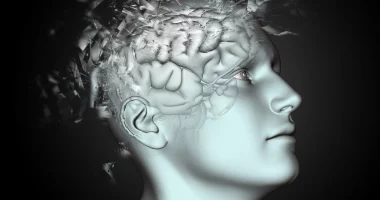High cholesterol levels typically don’t cause noticeable signs, so many individuals don’t realize they have it until a test reveals it.
Even though high cholesterol can be harmful, there are ways to decrease it. Individuals can make lifestyle changes, like eating healthier and exercising more. Sometimes, healthcare providers also recommend medications to help lower cholesterol levels.
What is Cholesterol?
Cholesterol is like a fat substance produced by the liver. It plays several important roles in the body, including being an element of bile acids that help digest fatty foods, serving as a precursor for steroid hormones, aiding in the production of vitamin D when the skin is exposed to sunlight, and maintaining cell membrane health. The body produces all the cholesterol it needs for these functions, so dietary cholesterol is not necessary. When the body has the right amount of cholesterol, it is beneficial. However, excessive cholesterol can become a risk factor for several health conditions.
Types of Cholesterol
The Centers for Disease Control and Prevention highlights two main kinds of cholesterol:
- Low-density lipoprotein cholesterol: Often referred to as “bad” cholesterol, high levels of LDL can lead to plaque accumulation in blood vessels, leading to their narrowing. This can increase the risk of stroke, heart attack, and other cardiovascular issues.
- High-density lipoprotein cholesterol: Known as “good” cholesterol, HDL helps eliminate LDL from the bloodstream. Low levels of HDL can also pose health risks, as the body may not effectively clear out the “bad” cholesterol.
Symptoms
High grades of Low-density lipoprotein cholesterol cholesterol typically don’t cause any signs, as stated by the National Heart, Lung, and Blood Institute also known as NHLBI. Because of this, many people don’t realize they have high cholesterol until they have a cholesterol screening test.
However, in some cases where cholesterol levels are very high, people might notice fatty masses on the skin or grayish-white rings over the corneas of the eyes.
The Centers for Disease Control and Prevention report that around 38 percent of individuals in the U.S. have high cholesterol. This makes it important to have regular cholesterol screenings. Diagnosing and treating high cholesterol can assist with serious health issues.
Effects of High Cholesterol
After a while, high cholesterol can lead to a condition called atherosclerosis, according to the NHLBI. In atherosclerosis, plaque builds up in blood vessels over the body. This plaque accumulation can stop blood flow, resulting in serious health issues such as chest pain, heart attacks, strokes, and decreased flow of blood to the feet and legs.
A study in 2014 identified that high cholesterol and high levels of blood pressure can function together to increase the risk of developing coronary heart disease. The researchers reported that individuals with the highest levels of blood pressure and cholesterol had an increased risk of fatal rate.
Causes
The National Heart, Lung, and Blood Institute reports several factors that can lead to unusual cholesterol levels:
- Certain Medicines: Some medicines can raise LDL cholesterol levels or lower HDL cholesterol levels. Specimens involve chemotherapy drugs for cancer and beta-blockers for high blood pressure.
- Lifestyle and Diet: Lack of physical activities, smoking, and an imbalanced diet are the most common causes of high cholesterol.
- Genetics: Some individuals inherit a tendency to have high LDL cholesterol levels.
Additionally, certain conditions are linked with abnormal cholesterol levels:
- Diabetes: People with diabetes often have high cholesterol.
- Metabolic Syndrome: This syndrome is a cluster of risk factors, including low HDL cholesterol, that increases the risk of heart disease, diabetes, and stroke.
- Hypothyroidism: This occurs when the thyroid gland does not produce enough hormones, leading to high grades of LDL and total cholesterol.
How to Lower Cholesterol
The AHA (American Heart Association) suggests several habits to help lower cholesterol levels:
- Eat a nutritious Diet: A diet that supports heart health includes vegetables, fruits, nuts, whole grains, poultry, fish, low-fat dairy products, and vegetable oils. It is important to limit foods high in sugar and salt, as well as processed and red meats. To effectively lower cholesterol, avoid trans and saturated fats, which are found in fatty meats and many packaged foods.
- Cease Smoking: Smoking can further heighten the chance of coronary artery disease in individuals with high cholesterol. Ceasing smoking can elevate HDL cholesterol and reduce LDL cholesterol. It’s also important for nonsmokers to avoid secondhand smoke, as it is also harmful.
- Exercise Regularly: An inactive lifestyle can lower HDL cholesterol (the “good” cholesterol) and raise LDL cholesterol (the “bad” cholesterol). Engaging in a minimum of 150 minutes of exercise per week can help lower total blood pressure and cholesterol.
- Maintain or Reach a Moderate Weight: Being overweight or obese can elevate LDL cholesterol and decrease HDL cholesterol. Reducing body weight by about 5 to 10% can enhance levels of cholesterol.
Treatments
Healthcare providers suggested several kinds of medications to decrease cholesterol levels. According to the CDC, these include:
- Niacin: The B vitamin helps elevate HDL cholesterol while reducing LDL cholesterol.
- Statins: These medicines decrease the production of liver of LDL cholesterol and increase its ability to eliminate this substance from the bloodstream.
- Bile Acid Sequestrants: These medications work by removing bile acids from the body, which assists reduce overall cholesterol levels.
- Injectable Medicines: These drugs are primarily used for individuals with a hereditary condition that causes extremely high LDL cholesterol levels.
When to Contact a Healthcare Provider
If cholesterol levels are not under the desirable range, it is important to see a healthcare provider. The treatment alternatives will vary based on how raised the cholesterol levels are and whether the individual has additional determinants for stroke or heart attack.
According to the CDC, healthcare providers may suggest medications for individuals with an LDL cholesterol level of a minimum 190 mg/dL, even if they do not have other risk factors. For those with additional risk factors, treatment may be considered if LDL cholesterol levels are at least 70 mg/dL.
Summary
Cholesterol is like a fat substance made by the liver, essential for various body functions. High cholesterol typically has no symptoms, so many individuals only discover it through screenings. It can lead to atherosclerosis, causing heart attacks, strokes, and other problems. Factors like diet, lifestyle, certain medications, and genetics can cause abnormal cholesterol levels. To manage high cholesterol, doctors may recommend lifestyle changes, medications like statins and niacin, and in severe cases, injectable drugs. Regular screenings and treatment are crucial for preventing serious health issues.







